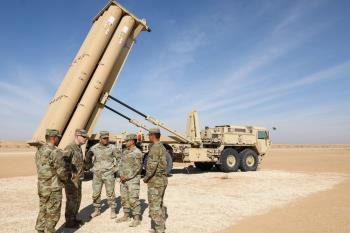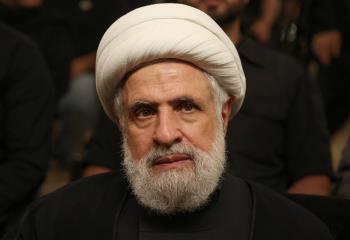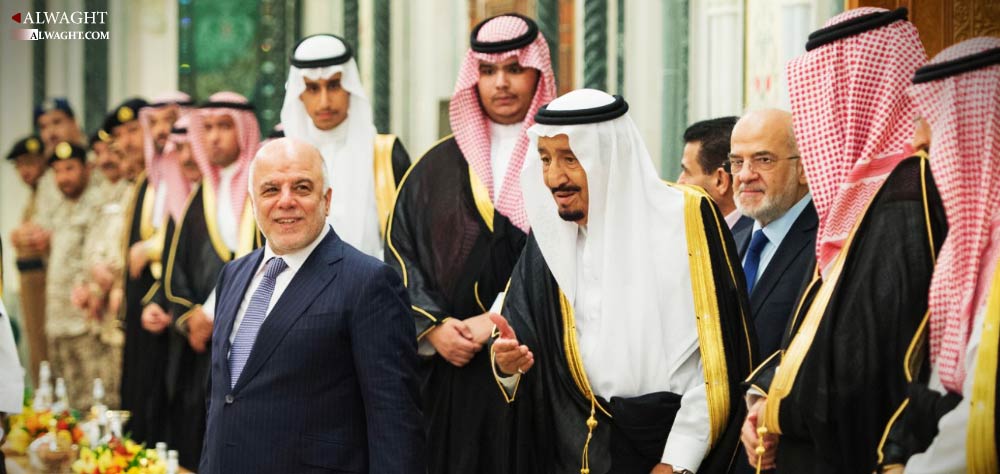Alwaght- Iraq is scheduled to hold its parliamentary election on May 15. This year's election is of significance as the country’s political parties compete for as many seats as possible in a post-ISIS Iraq. The election is expected to determine the face of the new Iraq. That is why aside from the internal factions, the foreign actors are looking forward to influencing the electoral process and secure their place in the post-terror country.
Saudi Arabia, one of these actors which in the past few months moved closer to the Iraqi government as well as the Iraqi parties, has been working hard to help entry to the parliament of the pro-Riyadh parties using its political propaganda machine as well as its financial resources. But what are the real goals of this effort? And what are the influencing instruments at the Arab kingdom’s disposal?
The goals
The collapse of the regime of the former dictator Saddam in 2003 was followed by the rise to power of Shiites, who are a majority in the country and have positive sentiments towards neighboring Shiite Iran. They have saved the power in the past 14 years, something ruffling the feathers of the Saudis who are concerned about increase in Iran’s regional weight and thus tipping the scales of power to Tehran’s advantage. As much as Iran helped Iraq build a new nation and stabilize as a new state, Saudi Arabia plotted against the rising nation. Back-to-back Saudi-sponsored conspiracies were weathered by Iraq: terrorism, ethno-sectarian crashes, and the very recently encouraging the split plan marked by the September 25, 2017, Kurdish secession referendum, all met their failure.
After all of these unsuccessful destabilizing schemes, Saudi Arabia is seeking a new way to check the Iranian sway in Iraq. The new plan wants to fragment the powerful Shiite blocs. For a while, Saudis have been working on channels linking them to the influential Shiite groups and figures. They look at the May election as providing the best chance to move towards their ends. That is why the kingdom is putting a premium on the results of the upcoming vote.
The instruments
Saudi Arabia may seek to influence the election via a series of ways.
1. Reconstruction
According to estimates published by Iraqi Prime Minister Haider al-Abadi's office, reconstruction of the damaged parts of Iraq requires $100 billion in finances. The war-torn country’s need to reconstruct the war-hit cities, the analysts say, might provide Saudi Arabia with the best possible door to step in the country’s politics under the guise of a project funder.
In October last year, the Iraqi PM visited Riyadh to attend the joint Saudi-Iraqi Coordination Council meeting. The meeting gathered together the Saudi Crown Prince Mohammed bin Salman, the US Secretary of State Rex Tillerson, and Al-Abadi at the Yamamah Palace. One of the most important issues on the agenda of the meeting was the Saudi assistance to the reconstruction of Iraq. Aware of Iraq's struggling with the shortage of funds to rebuild its highly devastated cities due to low oil prices, Saudi Arabia is trying to shoulder rehabilitation of the predominantly Sunni regions to lay the foundation of its influence, and consequently presence.
2. Sunni tribes
The Sunni tribes have often been Saudi Arabia's excuses and at the same time tools for interference in Iraq’s internal developments. Last year, the Iraqi news outlets reported that Riyadh paid $20,000 monthly to the tribal Sunni forces fighting the central government’s troops. Also, media sources suggested that in July 2016 Saudi Arabia made Iraqi tribes pledge allegiance to ISIS terrorist group by giving them suitcases full of US dollars. The word spread after an image rapidly circulated online showing a Saudi intelligence officer bribing elders of 9 Bedouin tribes (also known as Sheikhs) in the key province of Kirkuk–a city 236 kilometers north of Baghdad–, to owe their allegiance to self-proclaimed ISIS Caliph Abu Bakr al-Baghdadi by generously giving each Sheikh a suitcase full of US dollars. Before that, the Iraqi intelligence apparatus had reported that some businessmen and charities in Saudi Arabia and Jordan fundraised to bribe the Iraqi tribes into joining their forces with ISIS against Baghdad.
Therefore, the Sunni tribes remain a potential viable to the Saudis' role-playing for sway in Iraq, though realistic analyses suggest that the Sunnis in the new conditions, to a large extent, lost their ability to play a substantial role in the country’s political stage.
3. Limited Shiite options
Saudi Arabia counts on other options to gain ground in the heart of the Iraqi politics. It is working on the creation of new loopholes. Some secular Shiite politicians, such as Ayad Allwai, are advocates of severing strategic ties with Iran and instead allying with the Arab-Western camp. Setting heart on the Shiite windows of influence, the Saudis in past months tried to cozy up to PM al-Abadi as well as the leader of the Sadrist Movement Muqtada al-Sadr. The political and economic cooperation have been points of focus during the two Iraqi figures' visits to Riyadh, an arrangement through which the Saudis hope to build trust among the Shiites and so make their way into the Iraqi politics.
After all, Saudi Arabia wants to present itself as a decisive player in the post-ISIS Iraq. But the fact is that the kingdom never eyes a strong Iraq behind its help offers. Rather this comes as part of Prince Mohammed's fierce policy to take on Iran regionally. Closeness to Iraq is just one piece of a Saudi puzzle that has other pieces represented by meddling in Lebanon’s internal affairs, waging a war against neighboring Yemen that so far killed thousands and displaced millions, and efforts to normalize diplomatically with the Israeli regime.
A strong Iraq could shine as an Arab democracy in the region. This is well on the collision course with the authoritarian political regime in Saudi Arabia. Moreover, a powerful Iraq means stronger Iran-led Axis of Resistance in the region, something Al Saud rulers are antipathetic to.



























